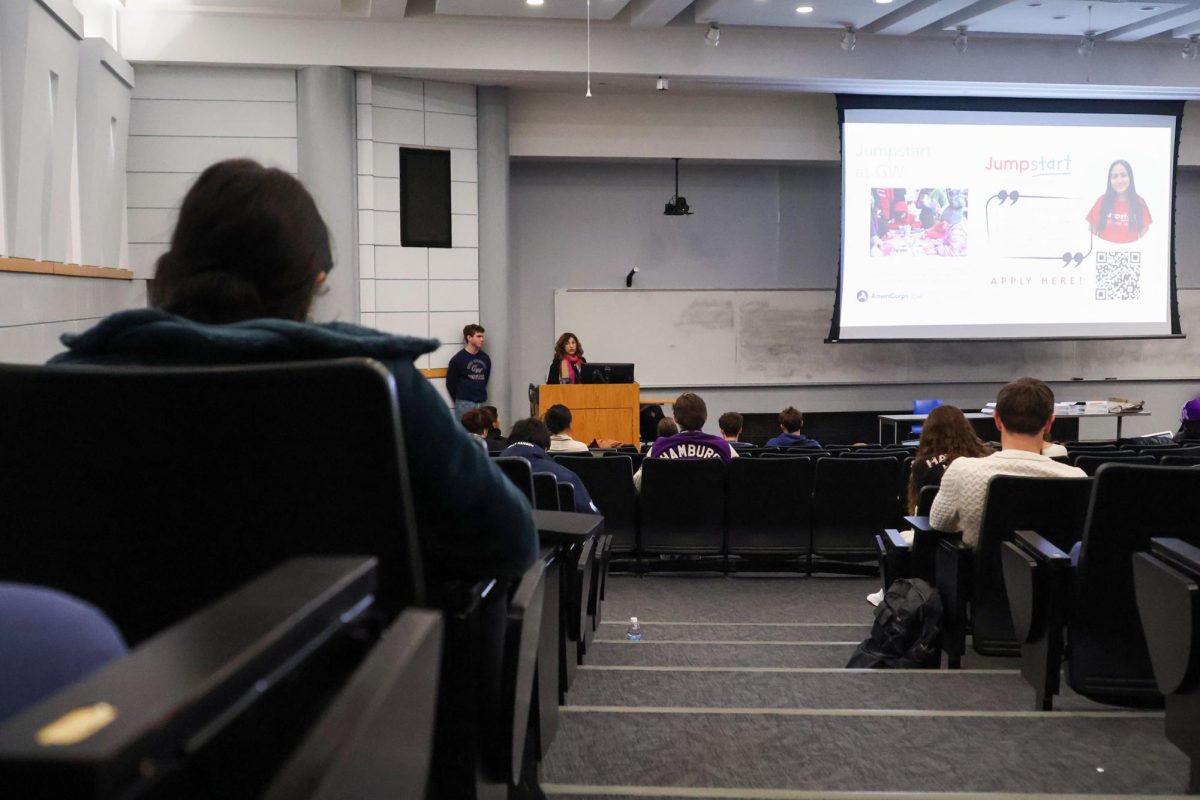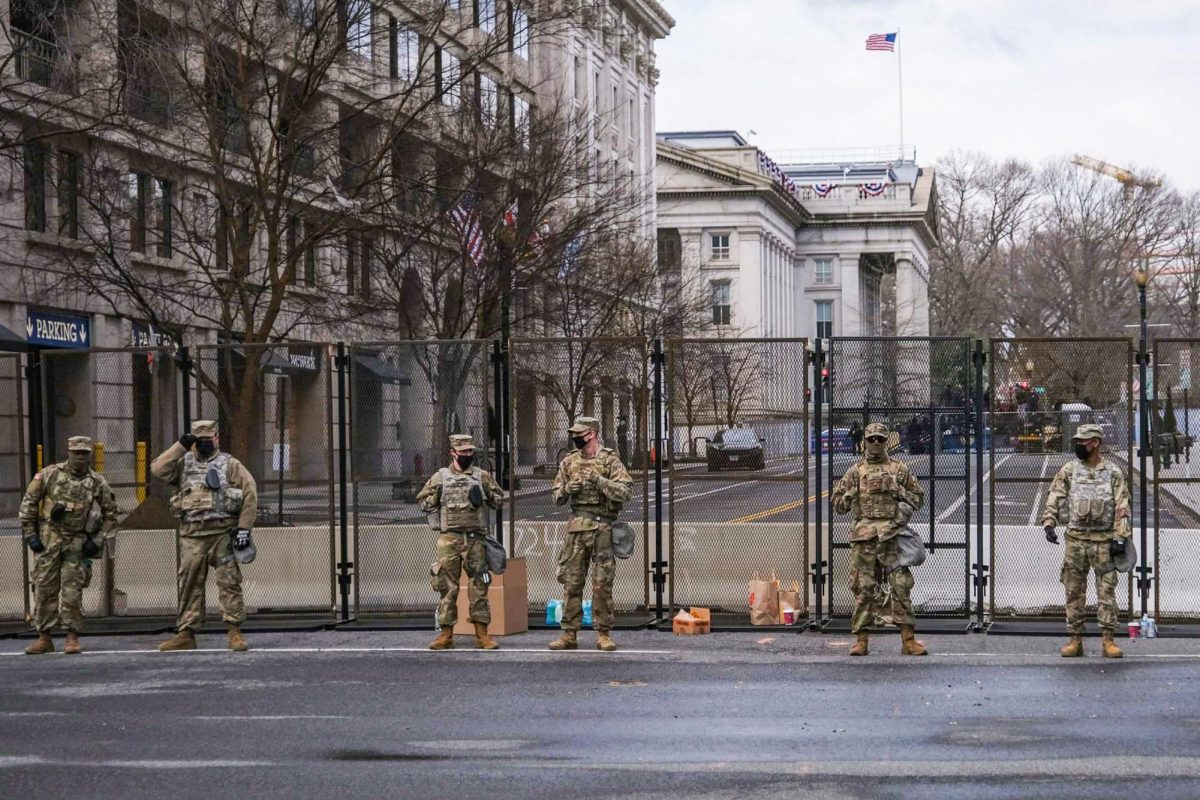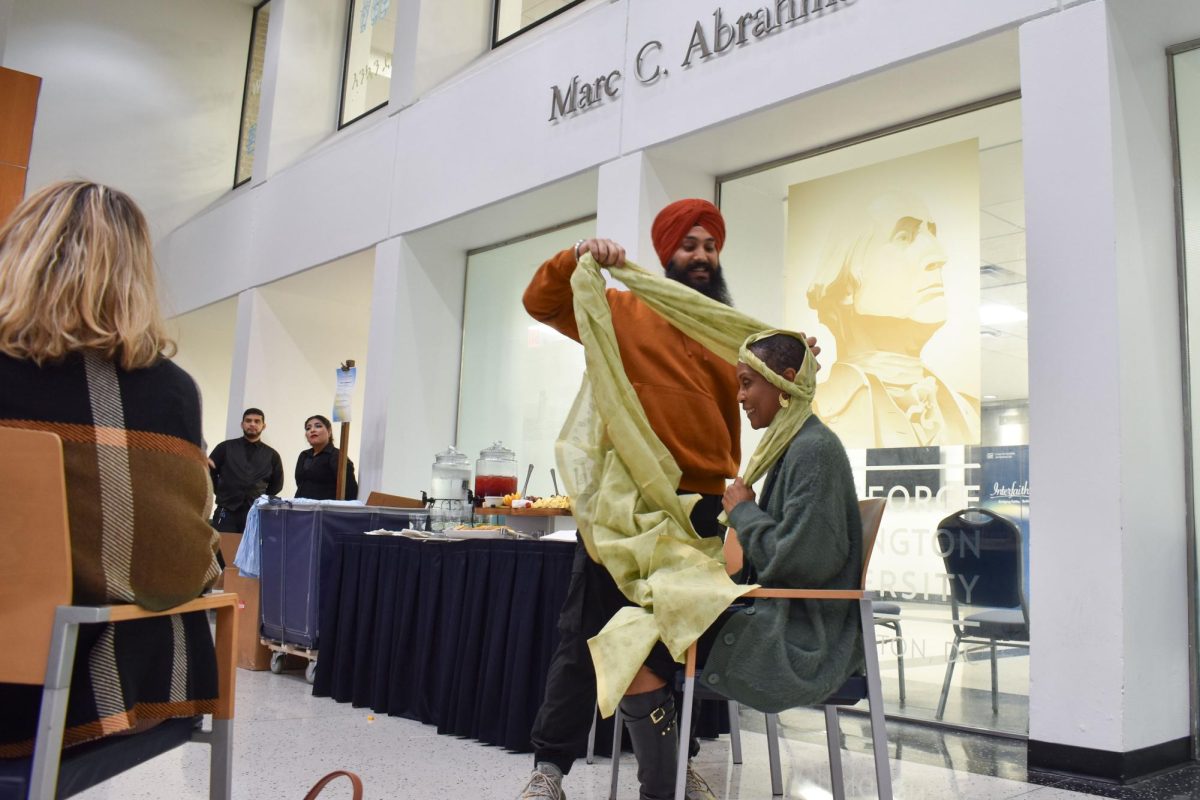The Student Government Association hosted the second monthly meeting for student organization leaders Wednesday night to share progress updates on issues students raised at their first meeting about insufficient funding.
SGA President Ethan Fitzgerald and Executive Secretary of Organizations Janae Russel hosted the meeting along with University officials like, Brian Joyce, the assistant dean of student Life, and Giulietta Versiglia, the managing director of operations and finance for digital student affairs, to share updates on their progress addressing students’ issues with funding and Engage, an online resource for student organization management. Joyce and Versiglia said they had been working with the SGA for the past month to improve students’ experiences with the Engage platform and bolster the organization advising process.
At the first meeting, student organization leaders expressed not knowing who their assigned adviser was. Joyce said the Office for Student Life recently updated the adviser assignments on Engage so all student organizations can see who their assigned adviser is. He also said the Office for Student Life is drafting a “guide” for new student organizations on campus with resources about how to best use Engage and the adviser system to help their group better navigate the online system.
“Somebody mentioned that new orgs need additional advising and coaching, and I completely agree,” Joyce said. “As soon as an org is approved, we’re going to provide it with some additional resources and the additional coaching that you mentioned. ”
At the September meeting, student organization leaders said they were not able to turn off membership emails — emails organization leaders receive each time a new member joins their group on Engage. Joyce said she will share a step-by-step document detailing how to stop these emails at a future president’s meeting.
“It’s a simple fix where you can say, I no longer want to receive an email every time somebody joins my organization, and you won’t get pinged every time that somebody does that,” Joyce said. That’s an easy fix, and we’re going to send that through SGA.”
Joyce said GW’s three-year contract with Engage is ending at the end of the year, which will allow the University to look for alternative avenues to conduct student organization engagement and planning. Joyce said he will host conversations with Fitzgerald and “other student leaders” to collect feedback on the most efficient platform for organization management but believes Engage is the “best out there.”
“We’ve taken a look at what else is on the market, and this is as good as it gets, but we will be sure to get some student feedback on that process so you have a voice in that as that contract comes up,” Joyce said.
Versiglia shared progress for student organizations to obtain subscriptions to services, like Canva, which students brought up at the first meeting when discussing budget concerns. She also said GW has moved away from its partnership with Anthony Travel and is working on a different partnership with Short’s Travel for GW’s athletic club teams’ transportation to events.
After GW and SGA officials gave progress updates, Chris Caputo, the GW Men’s Basketball head coach, and Cooper Handlesman, the GW Men’s Basketball general manager, spoke about alternative funding options for organizations. Some organization leaders expressed concerns about a lack of funding as well as a lack of productive fundraising opportunities.
Caputo and Handlesman said they wanted to encourage organization leaders to think “outside the box” about fundraising events that can help drive attendance at GW basketball games while still raising money for their organizations through avenues, like t-shirt sales in anticipation of games and tailgates.
“The athletic department wants to be a partner in that. Help us, help you,” Caputo said. “What we need is to drive our ability to unite, inspire the community.”
Fitzgerald then opened the discussion to the student organization leaders in the audience. Some student leaders said they have struggled to book room spaces in Monroe Hall and the University Student Center for their organization’s events and general body meetings. Students said they had received cancellations after reserving their rooms as well as doors being locked, leaving them unable to use the space for their meetings.
Fitzgerald said he experienced similar troubles when booking spaces himself and suggested the University implement a consolidated booking website for all available campus spaces to make the process of booking rooms easier for students.
Fitzgerald said he spoke with University President Ellen Granberg and Dean of Students Colette Coleman at past meetings about increasing the amount of funding the SGA can allocate to student organizations. Student organizations apply for SGA funding semiannually, a process which has historically resulted in complaints from students about not receiving a large enough budget to fund their organization’s events.
Fitzgerald said about 100 student leaders raised their hands when asked if they were not receiving enough funding for their organizations at last months’ president’s meeting, and he plans to use that message to show the Board of Trustees that funding for organizations is a “University-recognized challenge.”
“Our plan is to go before the Board of Trustees in February and have a conversation,” Fitzgerald said. “It is not going to happen in one year, but what we asked for was an additional $4 million for student organizations, I think that’s a reasonable ask.”





